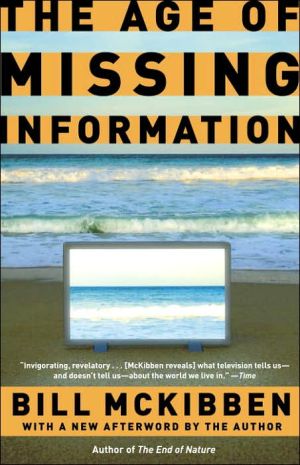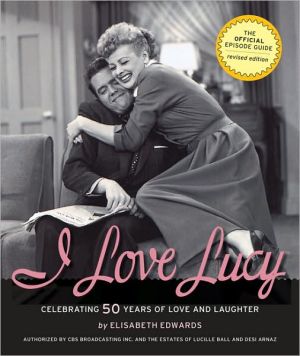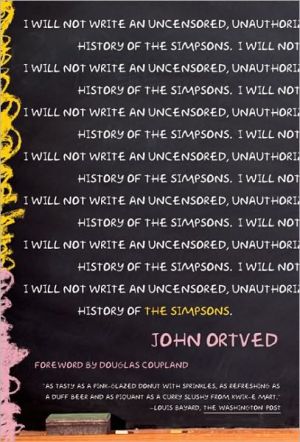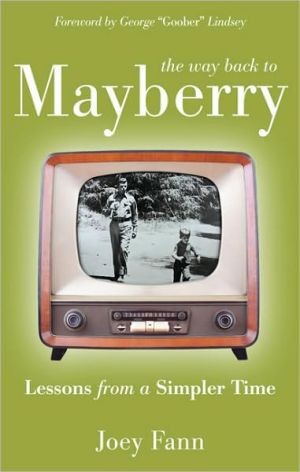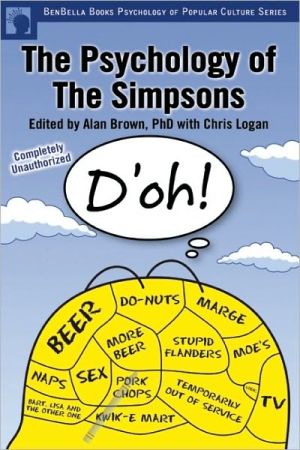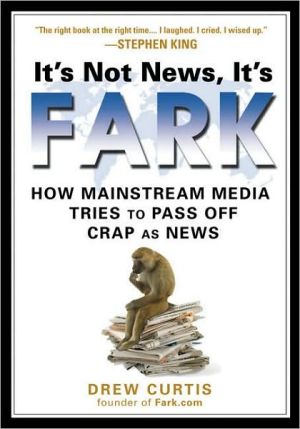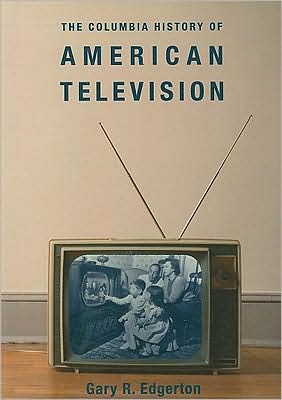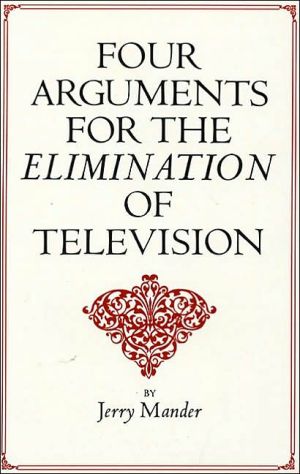The Age of Missing Information
“Highly personal and original . . . McKibben goes beyond Marshall McLuhan’s theory that the medium is the message.”\ ——The New York Times\ Imagine watching an entire day’s worth of television on every single channel. Acclaimed environmental writer and culture critic Bill McKibben subjected himself to this sensory overload in an experiment to verify whether we are truly better informed than previous generations. Bombarded with newscasts and fluff pieces, game shows and talk shows, ads and...
Search in google:
“Highly personal and original . . . McKibben goes beyond Marshall McLuhan’s theory that the medium is the message.”——The New York Times Imagine watching an entire day’s worth of television on every single channel. Acclaimed environmental writer and culture critic Bill McKibben subjected himself to this sensory overload in an experiment to verify whether we are truly better informed than previous generations. Bombarded with newscasts and fluff pieces, game shows and talk shows, ads and infomercials, televangelist pleas and Brady Bunch episodes, McKibben processed twenty-four hours of programming on all ninety-three Fairfax, Virginia, cable stations. Then, as a counterpoint, he spent a day atop a quiet and remote mountain in the Adirondacks, exploring the unmediated man and making small yet vital discoveries about himself and the world around him. As relevant now as it was when originally written in 1992–and with new material from the author on the impact of the Internet age–this witty and astute book is certain to change the way you look at television and perceive media as a whole.“By turns humorous, wise, and troubling . . . a penetrating critique of technological society.”–Cleveland Plain Dealer“Masterful . . . a unique, bizarre portrait of our life and times.”–Los Angeles Times“Do yourself a favor: Put down the remote and pick up this book.”–Houston Chronicle Publishers Weekly In this worthy but belabored attack on television, McKibben compares his experience watching 1700 hours of videotaped TV unfavorably to that of contemplating nature in the Adirondacks. Author tour. (May)
\ Publishers Weekly - Publisher's Weekly\ In this worthy but belabored attack on television, McKibben compares his experience watching 1700 hours of videotaped TV unfavorably to that of contemplating nature in the Adirondacks. Author tour. May\ \ \ \ \ BooknewsAn extended essay on what we miss by watching too much television. The author compares his experiences in a 24 hour period spent watching TV and another spent outdoors. Many might also compare (and prefer) that outdoor experience to spending time with this book. No bibliography. Annotation c. Book News, Inc., Portland, OR (booknews.com)\ \ \ Kirkus ReviewsThe wonderfully fluent young author of The End of Nature (1989) here softens the lamenting, doomsday tone of that book, counting on impressions of sweet nature to bring us to our senses. By contrasting the shallow information he absorbed by watching more than 1700 hours of cable video—the entire output of the Fairfax, Virginia, cable-TV system—to the deep knowledge he gained from a short camping trip in the Adirondacks, McKibben advances the subversive idea that TV has actually made us less informed by blinding us to the subtlety and power of unmediated experience in nature. "Time for a swim. I ease myself down from the rocks into the chilly water, feeling the mud between my toes." Again and again, McKibben contrasts such quiet, plainly stated sensory impressions, the fruits of 24 hours spent alone atop an anonymous mountain, with the meaningless jumble of "information" that pours forth daily from the one hundred channels of the largest cable system on earth. The items he reproduces from TV—extracted from shows ranging from CNN to McHale's Navy to Wild Kingdom—are harrowing in their dumbness or their dramatic exaggeration or their disconnection from reality. What's worthwhile, though, are the arguments that McKibben weaves from these video scraps: that we must abandon mindless consumption for a stable, sustainable economy; that we can learn to draw emotional comfort from being part of a community; that we can learn to savor the physical and aesthetic pleasure that comes with enduring a little rain and cold and effort in our lives. Most of all, McKibben persuades us that there is "another real world" out there that also broadcasts around the clock—and that ithas the power to transform us if we can stand still long enough to listen to its faint and ancient call. Suffering from bouts of verbal overkill, but, still, a brilliantly lucid and effective challenge to the myth of the Information Age.\ \
